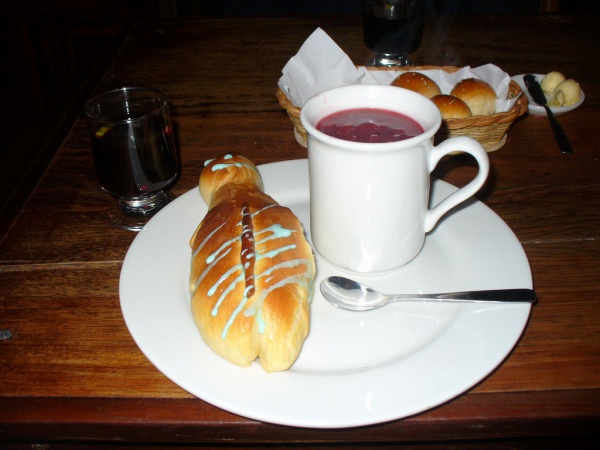Facts About T'anta wawa
T'anta wawa is a delightful sweet roll crafted to resemble a small child or infant. These tasty treats, typically made from wheat and occasionally filled with sweet fillings, hold a special place in the hearts of people from the Andean regions, including Bolivia, Ecuador, Peru, southern Colombia, and northern Argentina. They are more than just a snack; they carry deep cultural significance and are often enjoyed during important events like All Souls' Day, agricultural festivals, carnivals, and Christmas celebrations.
In Ecuador, t'anta wawa is a traditional food particularly enjoyed on November 2, throughout the Andean region. It is commonly savored with colada morada, a thick, fruity drink. Families make these sweet rolls and share them with friends and relatives, and they are sometimes given as gifts to godchildren. In rural cemeteries and indigenous communities, such as those in Tungurahua Province, t'anta wawa is used as an offering in ceremonies that honor and connect with ancestors, making it a beautiful blend of culinary art and cultural tradition.

 Bolivia
Bolivia